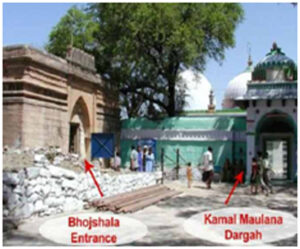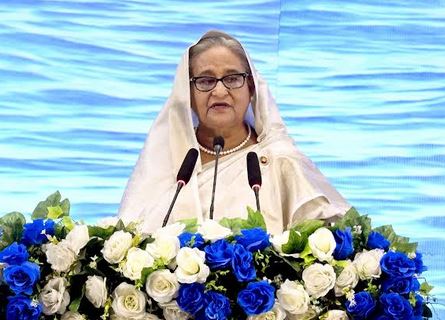 Online Desk: After Ayodhya’s Babri Masjid and Gyanvapi Masjid in Varanasi, a Hindu outfit has set its sights on Bhojshala in Dhar city of Madhya Pradesh.
Online Desk: After Ayodhya’s Babri Masjid and Gyanvapi Masjid in Varanasi, a Hindu outfit has set its sights on Bhojshala in Dhar city of Madhya Pradesh.
The Hindu Front for Justice Trust has filed a petition in Madhya Pradesh high court claiming Bhojshala complex as a temple. The case, which has been ongoing, saw a 50-minute hearing on Monday.
The petitioner urged the Archaeological Survey of India (ASI) to conduct an extensive survey to clarify whether Bhojshala is a temple or a mosque. The ASI, in response, cited a survey conducted in 1902, asserting that a new survey is unnecessary, and the report is already with the high court.
The Kamaluddin Trust argued that a court order in 2003 permitted worship on Tuesdays and Fridays, rendering the new petition baseless. Despite this, the petitioner called for a detailed survey to ensure compliance with the Worship Rights Act.
The structure finds itself engulfed in a heated dispute. The complex history and divergent narratives surrounding Bhojshala have amplified tensions between religious communities and spurred legal and socio-political maneuvers.
The genesis of the Bhojshala conundrum dates back to centuries, shrouded in the annals of time and layered with historical intricacies. Believed to have been built in the 11th century, the structure has alternately served as a temple and a mosque, reflecting the rich tapestry of India’s cultural and religious heritage.
Recent developments have thrust Bhojshala into the spotlight, with Hindu outfits intensifying their campaign to reclaim the site as a temple dedicated to Saraswati, the Hindu goddess of learning. Echoing sentiments akin to the Gyanvapi issue, these groups assert the primacy of Hindu religious symbols and seek legal recognition for their claims.
However, the complexity of the matter is underscored by the presence of Muslim worshippers who regard Bhojshala as a mosque, commemorating the memory of Kamal Maula, a Sufi saint. Their steadfast opposition to any attempts to alter the status quo reflects the deep-rooted emotional attachment and religious significance attributed to the site within the Muslim community.






